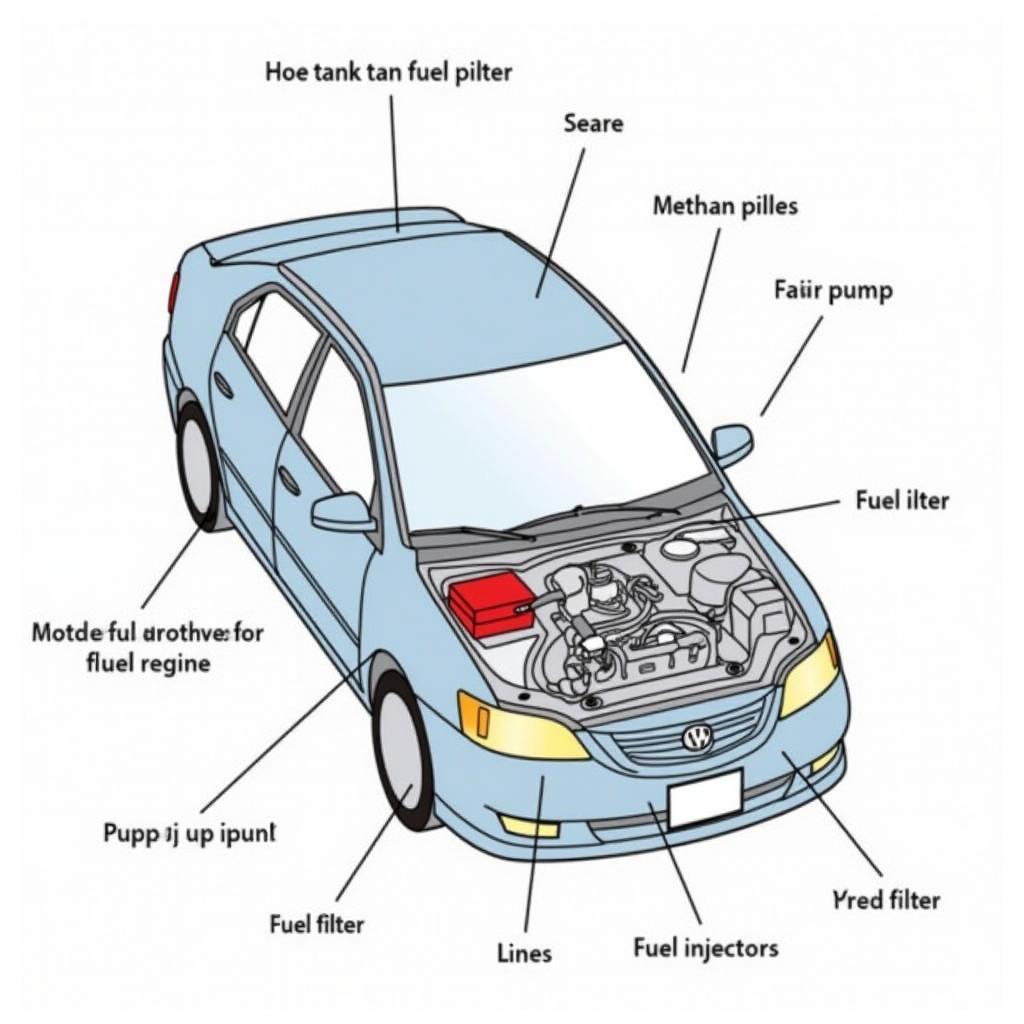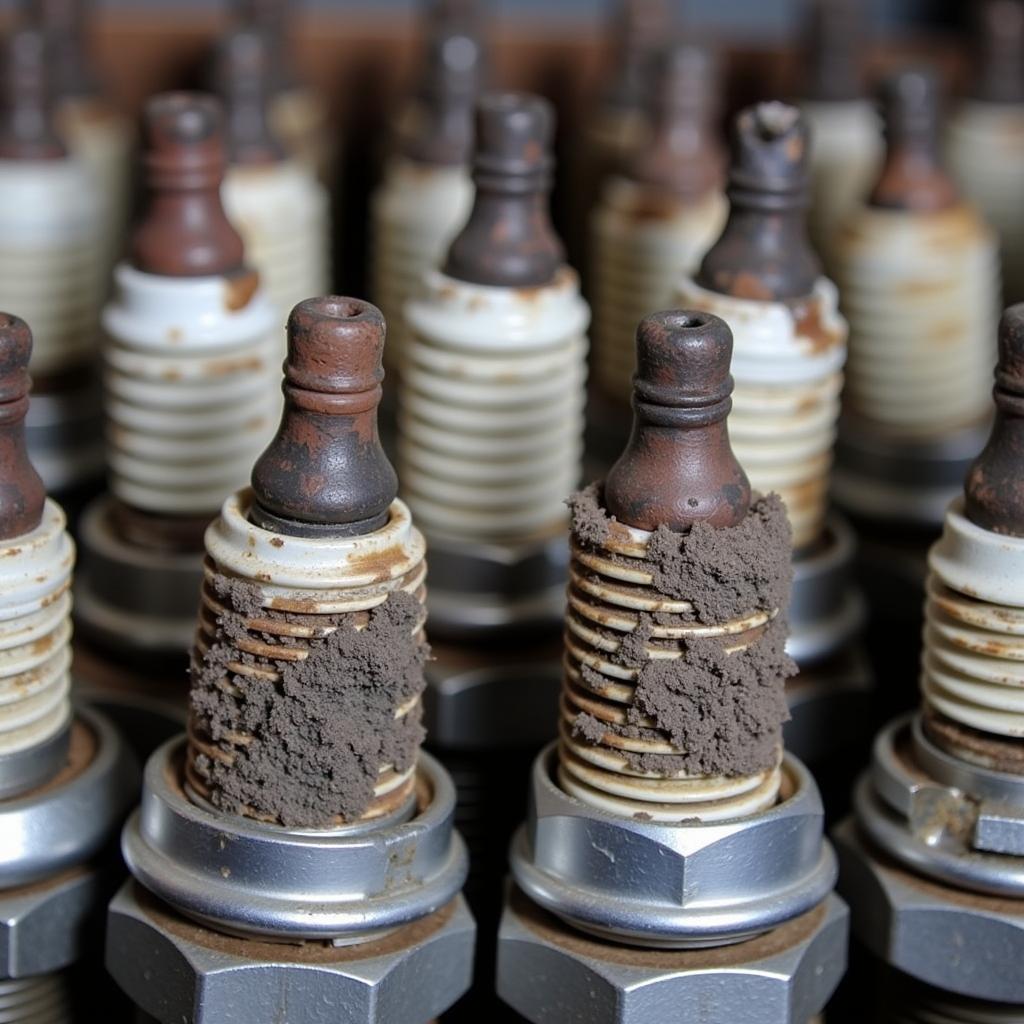Car acceleration problems can be frustrating and even dangerous. Whether your car hesitates, surges, or struggles to gain speed, understanding the potential causes and knowing How To Fix Car Acceleration Problems is crucial for a safe and enjoyable driving experience. This guide will walk you through common causes and effective solutions.
One common issue causing acceleration problems is a faulty fuel pump. pickup problem in car describes similar symptoms.
Understanding Car Acceleration Issues
Several factors can contribute to car acceleration problems. These range from simple maintenance issues to more complex mechanical failures. A proper diagnosis is essential to determine the root cause and apply the correct fix. Ignoring these problems can lead to further damage and potentially dangerous driving situations.
Common Causes of Slow Acceleration
- Fuel System Issues: A clogged fuel filter, malfunctioning fuel pump, or faulty fuel injectors can restrict fuel flow to the engine, resulting in poor acceleration.
- Air Intake Problems: A dirty air filter, leaks in the air intake system, or a malfunctioning mass airflow sensor (MAF) can disrupt the proper air-fuel mixture, leading to hesitation and sluggish acceleration.
- Ignition System Problems: Worn spark plugs, faulty ignition coils, or a failing ignition control module can cause misfires, reducing engine power and hindering acceleration.
- Transmission Problems: Slipping transmission, low transmission fluid, or a faulty torque converter can impact the transfer of power from the engine to the wheels, resulting in slow acceleration.
- Exhaust System Restrictions: A clogged catalytic converter or other exhaust restrictions can back up exhaust gases, hindering engine performance and acceleration.
- Sensor Malfunctions: Faulty sensors, such as the throttle position sensor (TPS) or oxygen sensors, can send incorrect signals to the engine control unit (ECU), leading to improper fuel delivery and poor acceleration.
 Car Fuel System Components
Car Fuel System Components
Diagnosing and Fixing Car Acceleration Problems
Addressing car acceleration problems requires a systematic approach. Start with the simplest and most common causes before moving on to more complex diagnoses.
Checking the Fuel System
Begin by inspecting the fuel filter. A clogged filter restricts fuel flow and can be easily replaced. Next, check the fuel pump for proper operation. Listen for a humming sound when the key is turned to the “on” position. If you suspect a fuel pump issue, consider seeking professional help.
Inspecting the Air Intake and Ignition Systems
Ensure the air filter is clean and replace it if necessary. Check for any leaks or cracks in the air intake system. Inspect the spark plugs for wear and tear and replace them if needed. If you suspect a problem with the ignition coils or ignition control module, consult a qualified mechanic. Problems with your automatic car’s clutch can also contribute to acceleration problems, as discussed in automatic car clutch problems.
Addressing Transmission and Exhaust Issues
Check the transmission fluid level and condition. Low or dirty transmission fluid can cause slipping and slow acceleration. If you suspect a more serious transmission problem, such as a faulty torque converter, consult a transmission specialist. For exhaust system restrictions, have a mechanic inspect the catalytic converter and exhaust system for blockages.
“Regular maintenance is key to preventing many acceleration problems,” says automotive expert, John Miller, ASE Certified Master Technician. “Simple checks like changing the air filter and fuel filter regularly can go a long way in maintaining optimal engine performance.”
 Inspecting Spark Plugs for Wear
Inspecting Spark Plugs for Wear
Troubleshooting Sensors
Faulty sensors can send incorrect information to the ECU, affecting fuel delivery and acceleration. Using a diagnostic scanner can help identify specific sensor issues. If you are not comfortable using a scanner yourself, a mechanic can diagnose and replace faulty sensors. Some acceleration problems manifest as engine shake. was the problem in the car when the engine shake provides further information on diagnosing and addressing engine shaking.
Conclusion
Troubleshooting and fixing car acceleration problems involves understanding the various systems that contribute to proper engine performance. By following the steps outlined in this guide, you can identify and address many common causes of slow acceleration. However, for complex issues, consulting a qualified mechanic is always recommended. Regular maintenance is crucial to preventing future acceleration problems and ensuring your vehicle operates safely and efficiently. Don’t hesitate to reach out for assistance. You can contact AutoTipPro at +1 (641) 206-8880 or visit our office at 500 N St Mary’s St, San Antonio, TX 78205, United States.
“Remember,” adds Sarah Chen, Certified Automotive Technician, “addressing acceleration problems early can prevent more serious and costly repairs down the line.” If you experience problems while driving, how to fix car acceleration problems while driving offers helpful advice. Certain golf cart models also experience similar issues. For instance, club car v glide problems addresses issues specific to that type of vehicle.





Leave a Reply